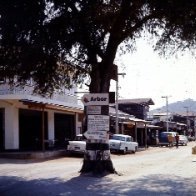Century Of Forced Integration Has Failed In The South; Thai Opinion
-
Recently Browsing 0 members
- No registered users viewing this page.
-
Topics
-
-
Popular Contributors
-
-
Latest posts...
-
50
Casting Netflix
Lol, yes, when you know the model you'll have the info you need...hahahahaha -
16
Trans woman caught smuggling 26 kilos of cannabis into the UK
Why the drug traffickers thought he was the ideal candidate to move their stash is truly an ace move of criminal genius. I mean, right there on page one of the Drug Traffickers Handbook for Dummies, it clearly states: "WARNING, do not, under any circumstances, use a cock in a frock with a wig as your mule." Bro, It's not rocket science and it doesn't take an Einstein IQ. You simply want the kind of person moving your kit who looks like they have never broken a rule in their entire life, the human equivalent of a generic beige cardigan, gliding through customs with a suitcase full of sunshine and smiles. What you absolutely do not want is someone strutting through Heathrow or Gatwick looking like Priscilla, Queen of the Desert has just rocked up in her party bus parked outside, dragging along two suspiciously heavy Samsonites while screaming “notice me” louder than a drunk Japanese salaryman singing karaoke at 3 am in a Tokyo hostess bar. -
51
Crime Two Lebanese Men Arrested on Koh Samui for Drugs
Absolutely gross looking. I remember when you couldn’t get into Thailand if you looked like a hippie. -
225
-
124
Report Thailand to Mandate Tax Declarations for All Citizens by 2027
This is a very ambitous (UNREALISTIC) target is an economy where most work is informal/unreported. Thailand has 21 million workers in the informal labour sector, accounting for 52.3% of the country's overall workforce while only 19.1 million (47.7%) operate in the formal sector. https://www.bangkokpost.com/thailand/general/2708701/over-half-of-thai-workers-in-informal-sector. View our policies at http://goo.gl/9HgTd and http://goo.gl/ou6Ip. © Bangkok Post PCL. All rights reserved. -
50
Casting Netflix
Thank you for your reply dunce boy @Cameroni, but before you posted, you too should have learned the difference between BRAND NAME and MODEL. The gift that keeps on giving...
-
-
Popular in The Pub












Recommended Posts
Create an account or sign in to comment
You need to be a member in order to leave a comment
Create an account
Sign up for a new account in our community. It's easy!
Register a new accountSign in
Already have an account? Sign in here.
Sign In Now